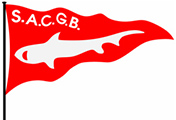We first expressed our support to ministers and Defra for the Atlantic Bluefin Tuna Catch & Release Tagging programme (UKCHART2020) as proposed by the Bluefin Tuna UK and the Angling Trust in late April this year.
The silence which followed was deafening so we sent letters to the relevant Defra contacts setting out the reasons for our support in some detail toward the end of May.
Eventually on the 26th June we received a letter from the Ministerial Contact Unit which basically said Defra had decided not to allow the programme to proceed. The reasons given were flimsy and did not convince us that the proposal had been afforded any meaningful consideration.
In fact the letter raised more questions than it answered and was a classic, although poorly constructed, “brush off”.
Our response was sent three days later, on the 29th June, where we challenged the reasoning provided and asked a number of specific questions.
The result was a Zoom call invitation to ourselves and our colleagues from the SCBI with Ruth Allin and Marc Owen of Defra.
Simon Thomas, our club Biologist represented the SACGB and Dave West represented the SCBI. Between them they presented the positive economic aspects for coastal communities and the scientific/conservation benefits which the Bluefin proposal would deliver . They also pointed out the political risks of not proceeding with the programme.
Since then Rishi Sunak, the Chancellor has noted,
“ Our economy relies on consumption, especially social consumption – the pubs, cafes, restaurants, hotels and B&Bs that bring life to our villages, towns and cities……..”
The Bluefin proposal delivers the social consumption which Rishi Sunak so correctly refers to so why Defra cant see that escapes us.
The Shark Angling club of Great Britain has first hand experience of how a big game fish can transform the economic health of coastal communities. In 1953 when the club was formed the Cornish fishing fleet was struggling financially and found themselves in a very definite downward spiral with no obvious solution.
The big game angling opportunity which the Blue Sharks provided saved the fleet and significantly enhanced the economies of many coastal towns from the increased tourist trade it brought.
Sixty seven years later many coastal communities are still benefitting from shark angling tourism and will do for many years to come.
The catch and release records for these fish, and the tagging work done by the anglers and skippers have been used, and are still being used, by marine scientists today. Our club biologist, Dr. Simon Thomas, has recently published a paper on Blue Sharks using some of these data and will soon publish more. This work greatly assists with our understanding and conservation of the species and provides much needed information to those who are charged with managing our marine environment.
The parallels with Covid 19 and the difficult times experienced by the Cornish fleet in the 1950”s are obvious as our charter boats, bed & breakfasts, hotels, restaurants, pubs and cafes are severely financially challenged this year and will be for a number of years to come as a consequence of this virus.
To their shame, Defra appear to be continuing to play for time and ignore the economic benefits which Bluefin UKCHART and a Live Release Bluefin Fishery would deliver to our coastal communities.
Today conservation is uppermost in the majority of peoples minds yet Defra choose to ignore an opportunity to enhance our abilities to protect this iconic species and provide up to date data for those who have the responsibility to manage our marine environment.
We have still not received any response to our letter of 29th June where we asked specific questions of Defra and the advice they have been given.
We will continue to pursue Defra for answers as we believe the economic benefits this iconic species can provide to our coastal communities, who are struggling to deal with the impact of Covid 19, are significant. We also believe that the opportunity to enhance our knowledge of Bluefin Tuna must not be overlooked.
